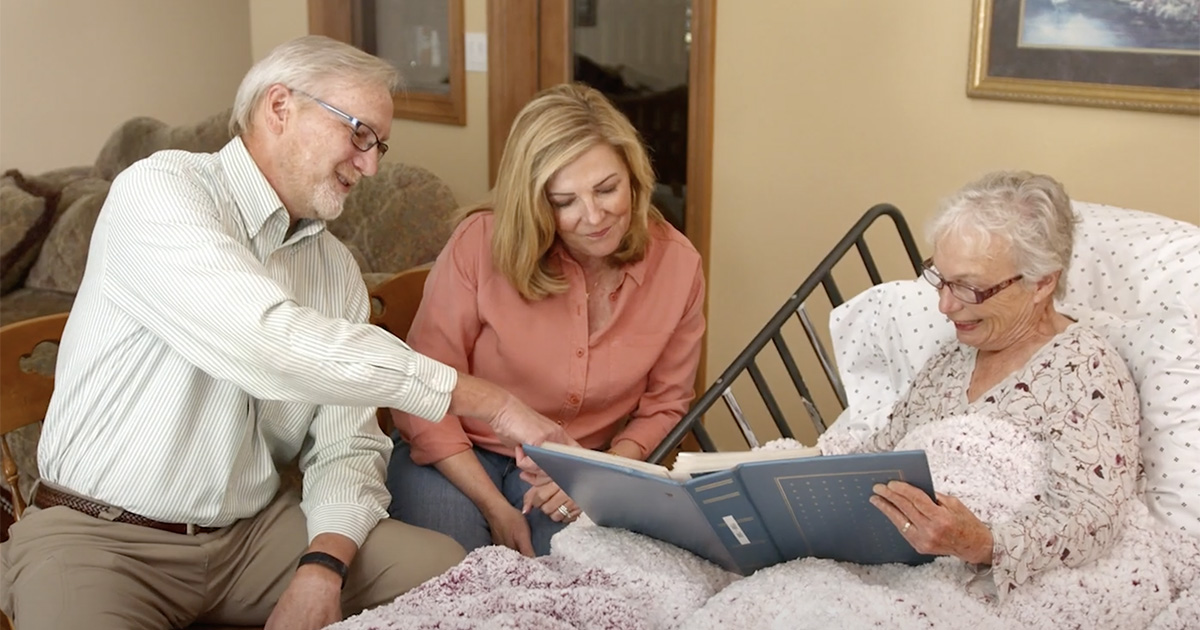
Why should someone start hospice sooner than later? Making the decision to start hospice care for your loved one is overwhelming. It means acknowledging that the end is near. But the decision is also empowering, because an array of supportive care and assistance becomes available to both the patient and family. Nursing is just the start. Starr's hospice program also provides:
Hospice is a vastly underused Medicare benefit in the United States. A 2020 report from the National Hospice and Palliative Care Organization, using data collected in 2018, states that over 50 percent of patients were receiving hospice care for 30 days or fewer. That’s a far cry from the expected six months. What’s worse is that 27.9 percent were on hospice for just one to seven days.
Although Starr Hospice will care for a qualified hospice patient for that short time, the program is intended to do so much more for patients and families. We can’t count the number of times our client families have said they wish they’d started hospice sooner. The amount of support received during such a sensitive time is invaluable.
With advances in medical technology, individuals today are living longer with chronic and life-limiting illnesses. With new treatments available that may add years to one’s life, it’s understandable that a family and/or patient would want to exhaust all possible curative measures.
While it’s true that some interventions can slow a disease’s natural course, we must weigh this against the patient’s quality of life. For example, a person with cancer who undergoes chemotherapy or other treatments may improve or even go into remission. This is not the result for everyone. And even for those whose treatments are successful, the treatments come with sometimes severe side effects. Other diseases have symptoms that frequently flare up, resulting in repeated hospitalizations.
In our experience, the decision of when to start hospice often comes down to the word hope—many people equate hospice with giving up hope that their loved one will get better. To them, hospice means bringing a loved one home from the hospital to die. Decisions of such magnitude made from that perspective are understandably stressful and emotional.
Yes, your loved one will die at some point; it’s a natural part of life. Hospice neither hastens nor postpones death. Hospice was designed to help patients make the most of each day in their final season of life. The hospice team provides all needed resources to help the family care for a loved one in the comfort of home. Hospice clinicians are experts in pain management, so medications are closely monitored to ensure the patient remains comfortable and as alert as desired.
Most people think of grief in terms of what happens after a loved one dies. But there is such a thing as anticipatory grief, which is the sadness experienced before loss, when it is understood that a person will be passing soon. So, anticipatory grief can be a big part of the hospice journey. Different family members will handle anticipatory grief in unique ways, and it’s important to give each person the space that they need.
Struggling with anticipatory grief might be the main reason that a family is not ready to begin hospice.
Every member of the hospice team can support the family and patient through this process, but it is often the social worker, chaplain, or bereavement counselor who helps facilitate family discussions about grief. This is why starting hospice sooner than later is helpful not only for the patient, but also to assist the family with processing the approaching loss.
Back to that word hope. We view hospice as a time to redefine hope. It becomes your desire to create a peaceful, comfortable environment in which your loved one can live their final months. As a family, you take charge of each remaining day and celebrate your loved one and the impact they had on you and the world around them. Mend things that need mending. Reminisce about cherished life events. Spend this precious time together with those who are most important.
Various studies cite different lengths of time, but all agree that patients with terminal illnesses live longer with hospice care than without it. Why is this?
When is the time right to start hospice? At any time during a life-limiting illness, it’s appropriate to discuss all an individual’s care options, including hospice. Note the distinction between being eligible for hospice—i.e., the patient’s doctor estimates a life expectancy of six months or fewer—and being emotionally/mentally ready to begin hospice. The latter is unique to each patient and family and something that cannot be decided for you by anyone else.
Considering these questions with or on behalf of your loved one can help you decide:
You may also be interested in reading:
Hospice Frequently Asked Questions
The Role of Social Work in Hospice
Communication and Caregiving